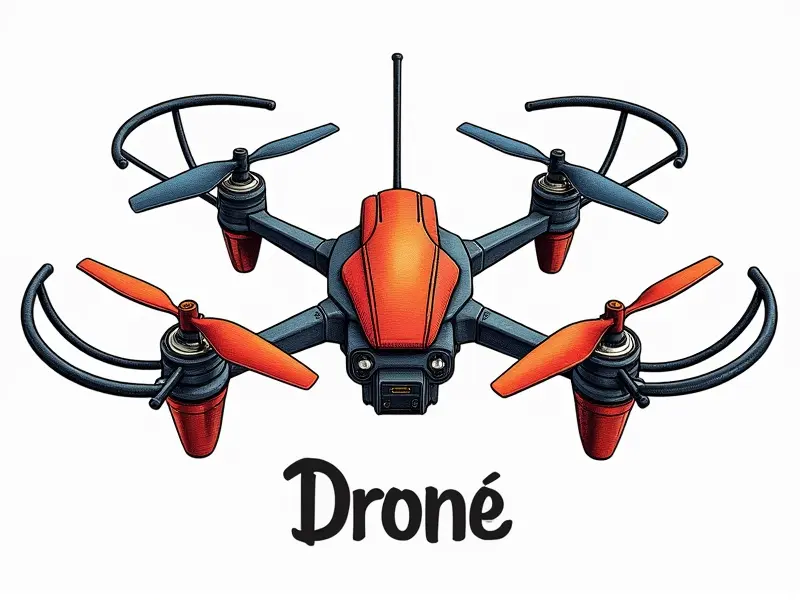Can RC helicopters fly outside?

Can RC Helicopters Fly Outdoors?
Remote control (RC) helicopters are a favorite among hobbyists and enthusiasts for their maneuverability, precision, and sheer excitement. One of the most common questions asked by newcomers to this hobby is whether these miniature marvels can fly outdoors. The answer is yes, but with several important considerations.
Flying RC Helos Indoors vs Outdoors
While RC helicopters are often tested indoors due to their small size and ease of control, flying them outside offers a whole new set of challenges and opportunities. Indoor flights typically involve fewer variables like wind resistance and temperature fluctuations, making it easier for beginners to learn basic maneuvers without the added stress of outdoor elements.
However, outdoor flying provides a more realistic experience that can enhance your skills as a pilot. It's crucial to understand both indoor and outdoor dynamics before venturing outside with your RC helicopter.
RC Heli Weather Tolerance Explained
The durability of an RC helicopter in various weather conditions is a significant factor when deciding whether to fly it outdoors. Most modern RC helicopters are designed to handle some level of exposure, but extreme temperatures and harsh winds can affect their performance and lifespan.
- Temperature: Extreme cold or heat can impact battery life, motor efficiency, and the overall mechanical functionality of an RC helicopter.
- Rain: While some models are waterproof, prolonged exposure to rain can damage electronic components. It's best to avoid flying in wet conditions unless your model is specifically designed for it.
Outdoor Flight Capabilities of RC Helis
Flying an RC helicopter outdoors requires a good understanding of its capabilities and limitations. High-end models with more powerful motors, better aerodynamics, and robust construction can handle outdoor challenges much better than entry-level toys.
- Wind Resistance: Stronger motors and improved blade design help mitigate the impact of wind gusts.
- Battery Life: Outdoor flights often consume more power due to increased resistance, so having spare batteries on hand is essential.
Legalities of Flying RC Helicopters Outdoors
Flying an RC helicopter outdoors comes with legal considerations that vary by location. In the United States, for instance, federal and local regulations govern where you can fly your RC helicopter:
- Federal Aviation Administration (FAA): The FAA requires hobbyists to register their drones and follow specific rules regarding airspace restrictions.
- Local Regulations: Cities, parks, and other public spaces may have additional regulations or designated flying areas for RC models.
Best Conditions for RC Helo Outings
To ensure a successful outdoor flight, it's important to choose the right conditions. Ideal weather includes calm winds, clear skies, and moderate temperatures:
- Calm Winds: Low wind speeds (less than 10 mph) make flying more stable and predictable.
- Moderate Temperatures: Avoid extreme heat or cold to maintain optimal battery performance.
Can RC Helicopters Fly in Wind?
Flying an RC helicopter in windy conditions is possible but challenging. Strong winds can affect the stability and control of your aircraft, making it harder to execute maneuvers:
- Tailwind/Headwind: Tailwinds provide a boost while headwinds create resistance.
- Crosswinds: These are more challenging as they can cause the helicopter to drift off course.
How Wind Affects RC Helicopter Flight
The impact of wind on an RC helicopter's flight is significant. Strong gusts can destabilize the aircraft, making it difficult to maintain altitude and control:
- Wind Gusts: Sudden changes in wind direction or speed can cause erratic movements.
- Draft Effects: Nearby obstacles like buildings or trees create localized draft effects that affect flight patterns.
Tips for Flying RC Helicopters Outdoors
To enhance your outdoor flying experience, follow these tips:
- Choose a Suitable Location: Find an open area with minimal obstacles and check local regulations.
- Check Weather Conditions: Avoid flying in extreme weather or strong winds.
- Test Your Equipment: Ensure all components are functioning properly before taking off.
Weather Conditions for Flying RC Helis
The right weather conditions play a crucial role in outdoor flights. Ideal scenarios include:
- Sunny Skies: Clear visibility and stable atmospheric conditions.
- Mild Temperatures: Avoid extremes to maintain optimal battery performance.
Legalities of Flying RC Helis Outside
Familiarize yourself with the legal requirements for flying your RC helicopter outdoors. Key points include:
- FAA Registration: Register your drone or RC model according to FAA guidelines.
- Park Regulations: Check local park rules and designated flying zones.
Conclusion
Flying an RC helicopter outdoors can be a thrilling experience, but it requires careful planning and understanding of both your equipment's capabilities and the environmental conditions. By choosing the right weather, location, and adhering to legal guidelines, you can ensure safe and enjoyable outdoor flights.

